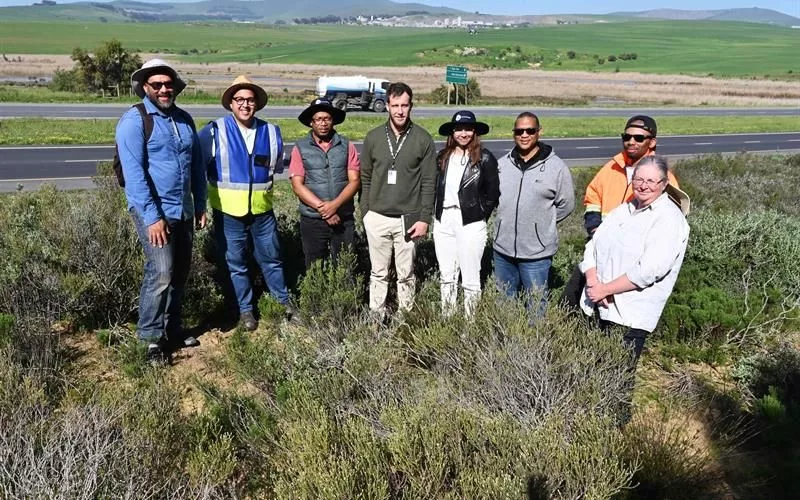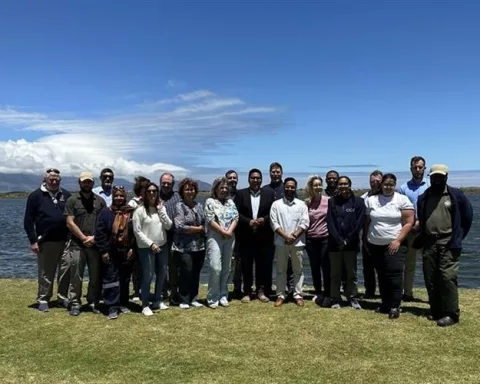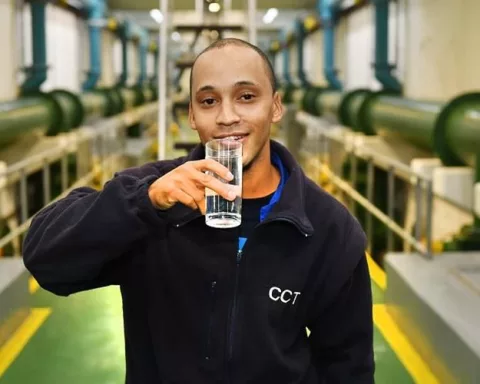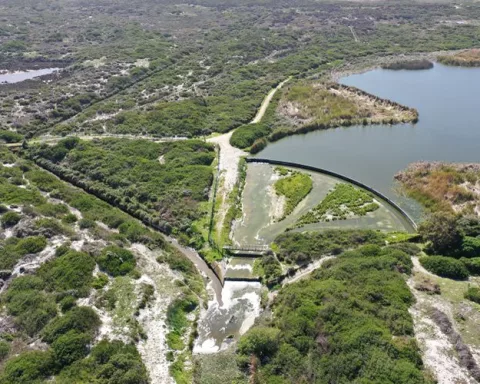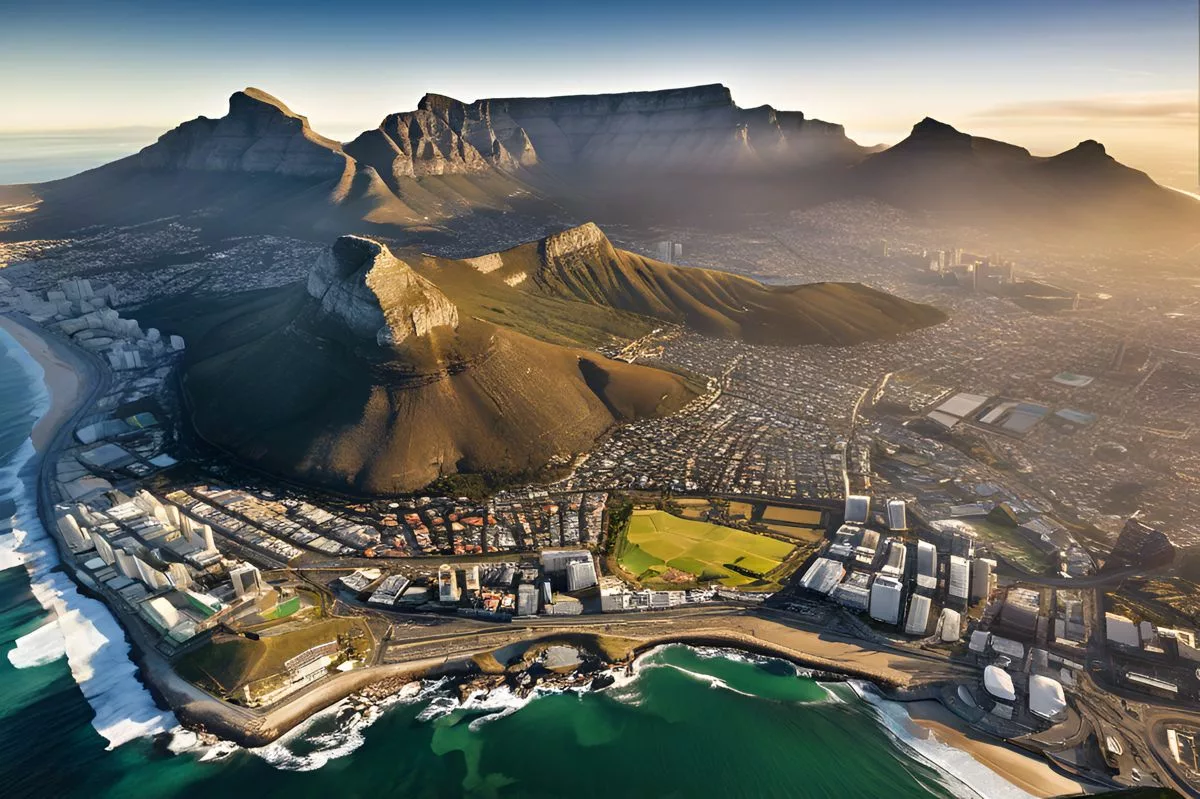The Diep River Catchment Management Forum (DRCMF) is working to improve the health of the Diep River and boost the quality of inland water. The DRCMF has identified key projects and strategies, including the Bayside Canal Upgrade and the Dunoon/Doornbach Stormwater Study, to tackle complex issues affecting the river’s health. The DRCMF’s joint efforts with community engagement are restoring the health of the Diep River and providing a vital part of the city’s ecosystem with a breath of fresh air.
Enhancing the Diep River’s Health: A Joint Endeavor. The Diep River Catchment Management Forum (DRCMF) was formed to boost the quality of inland water. The DRCMF’s mission is to comprehend environmental and social elements that obstruct efficient river management. They have identified key projects and strategies, including the Bayside Canal Upgrade and the Dunoon/Doornbach Stormwater Study, to improve the health of the Diep River. The journey may be challenging, but every step taken is improving the river’s health and providing a vital part of the city’s ecosystem with a breath of fresh air.
Inauguration of the Diep River Catchment Management Forum
In the chill of an August morning in 2024, Councillor Zahid Badroodien, the individual in charge of Water and Sanitation in the City’s Mayoral Committee, joined the freshly-formed Diep River Catchment Management Forum (DRCMF) on its first expedition. Their endeavor was not just to walk alongside the Diep River’s flickering boundaries but also to take substantial steps toward bettering the management of inland water quality.
As a component of the city’s Mayoral Priority Programme (MPP), the DRCMF was set up with a distinct vision. Their main aim was to spot areas that needed joint effort and mutual interventions to boost the quality of inland water. The management forums were created to drive such initiatives. On June 29, 2024, the DRCMF diligently responded to its call to action. To lead this initiative, interim Chair Rupert Koopman and interim Deputy Chair Petra Broddle, renowned figures in the botany domain, were chosen.
Imperatives of DRCMF’s Mission and Diep River’s Influence
At the heart of the DRCMF’s urgent mission is the need to comprehend the environmental and social elements that obstruct efficient river management. The impact of urban, agricultural, commercial, and industrial pollution on essential waterways is substantial. Tackling these intricate issues necessitates a joint effort, involving all forum members, as well as broader community engagement.
The expanse of the Diep River catchment area, under the DRCMF’s influence, is enormous. It stretches over 1500km², with almost half of this within the jurisdiction of the City of Cape Town’s municipality. The remaining area falls under the control of the Cape Winelands District and West Coast District municipalities.
A principal tributary of the Diep River is the Mosselbank River. Its origin lies in the Drakenstein Municipality, and it winds along the Old Paarl Road and the R304, before passing the N1 into Cape Town. The confluence of the Mosselbank and Diep River lies along Philadelphia Road. The river’s flow continues past the Vissershok Landfill, informal housing sites in Table View, industrial zones, and eventually into the sea at Lagoon Beach, north of Paarden Eiland. The river’s final stage, south of Dunoon, is a part of the protected Table Bay Nature Reserve.
Key Projects and Strategies by DRCMF
The DRCMF has already pinpointed several significant projects within this catchment area. One key endeavor is the Dunoon/Doornbach Stormwater Study. This project’s objective is to evaluate the water quality being discharged into the Diep River and analyze the current stormwater drainage system. A major challenge lies in the floodplains of the Kleine Stink River, which are covered with informal settlements. Re-routing the river away from these homes is a significant logistical obstacle, but it is being contemplated as a possible solution.
Another ongoing project is the enhancement of the Milky Way/Joe Slovo pond. The precise design phase is underway, with a focus on enhancing the Milky Way Pond and the Erica Road stormwater system. The project aims to improve the habitat for local wildlife and plants. The upgrade also includes the Erica Road low-flow diversion, completed in July 2023. This structure is now fully functional, diverting contaminated stormwater from Joe Slovo and Phoenix to the sewer system, thereby reducing the pollution entering the Diep River.
The Bayside Canal Upgrade is another crucial initiative undertaken by the DRCMF. Its aim is to augment the canal’s capacity, provide naturally structured treatment facilities to improve the quality of stormwater runoff, and plan for consistent maintenance in the future.
One of the simplest yet most effective strategies implemented has been the installation of litter nets. Currently, 22 of these nets are in place across stormwater pipe outlets that cross Marine Drive. These nets have proven to be effective in trapping general waste. A litter fence has also been installed downstream of the piped stormwater outlets, which prevents litter from flowing into the Diep River.
DRCMF’s Role in Restoring the Health of the Diep River
The efforts made by the DRCMF reflect a deliberate attempt to restore the Diep River’s health. Their actions not only illustrate an understanding of the complex issues affecting the river but also a dedication to discovering effective, sustainable solutions. The journey may be challenging, but every step taken, every joint effort made, is improving the river’s health and providing a vital part of the city’s ecosystem with a breath of fresh air.
1. What is the Diep River Catchment Management Forum (DRCMF)?
The DRCMF is a joint endeavor working to improve the health of the Diep River and boost the quality of inland water. Its mission is to comprehend environmental and social elements that obstruct efficient river management, and it has identified key projects and strategies, including the Bayside Canal Upgrade and the Dunoon/Doornbach Stormwater Study, to improve the health of the Diep River.
2. What is the expanse of the Diep River catchment area under DRCMF’s influence?
The Diep River catchment area under the DRCMF’s influence is enormous, stretching over 1500km², with almost half of this within the jurisdiction of the City of Cape Town’s municipality. The remaining area falls under the control of the Cape Winelands District and West Coast District municipalities.
3. What are some key projects and strategies identified by DRCMF?
The DRCMF has identified several significant projects within the catchment area, including the Dunoon/Doornbach Stormwater Study, the enhancement of the Milky Way/Joe Slovo pond, the Bayside Canal Upgrade, and the installation of litter nets and fences.
4. What is the Dunoon/Doornbach Stormwater Study?
The Dunoon/Doornbach Stormwater Study is a project aimed at evaluating the water quality being discharged into the Diep River and analyzing the current stormwater drainage system. A major challenge lies in the floodplains of the Kleine Stink River, which are covered with informal settlements. Re-routing the river away from these homes is a significant logistical obstacle, but it is being contemplated as a possible solution.
5. What is the Bayside Canal Upgrade?
The Bayside Canal Upgrade is a crucial initiative undertaken by the DRCMF aimed at augmenting the canal’s capacity, providing naturally structured treatment facilities to improve the quality of stormwater runoff, and planning for consistent maintenance in the future.
6. What is DRCMF’s role in restoring the health of the Diep River?
The DRCMF’s efforts reflect a deliberate attempt to restore the Diep River’s health by understanding the complex issues affecting the river and discovering effective, sustainable solutions. Every step taken, every joint effort made, is improving the river’s health and providing a vital part of the city’s ecosystem with a breath of fresh air.

